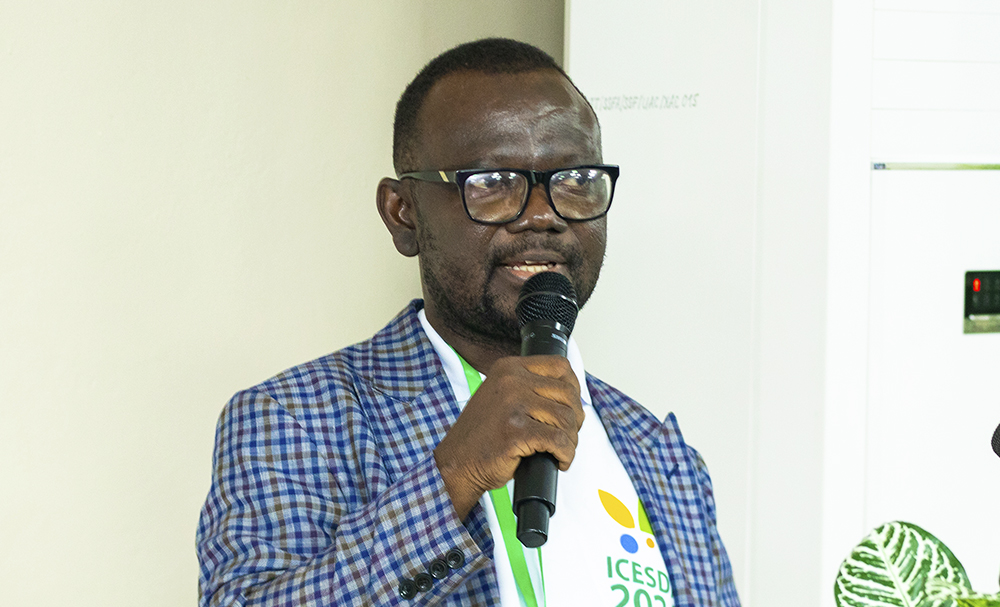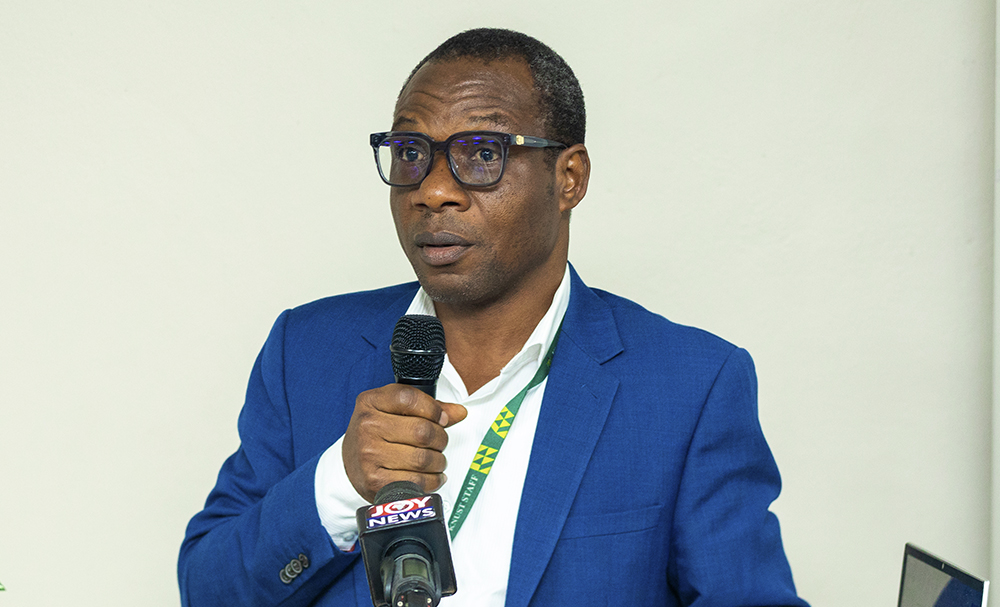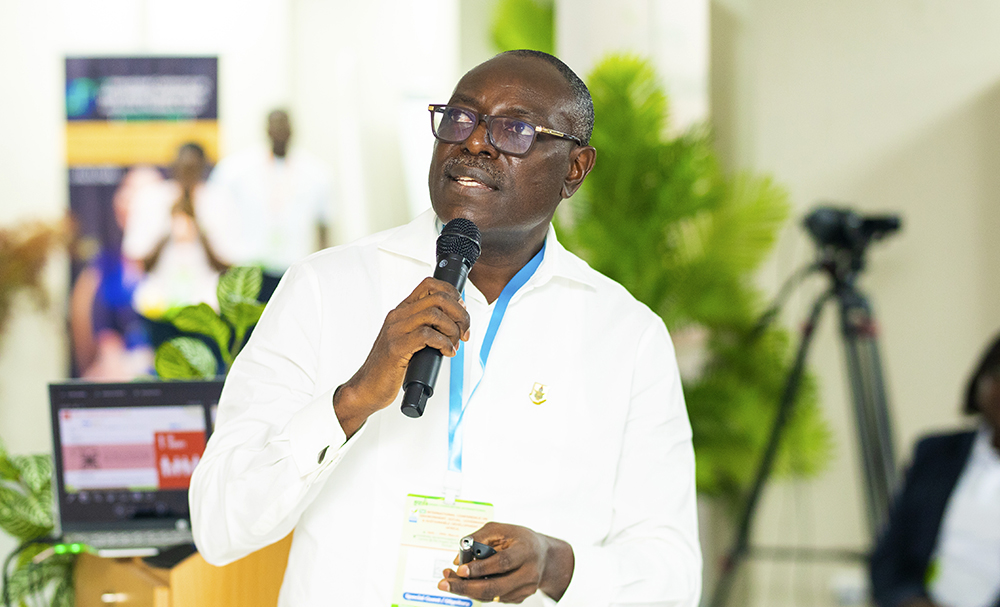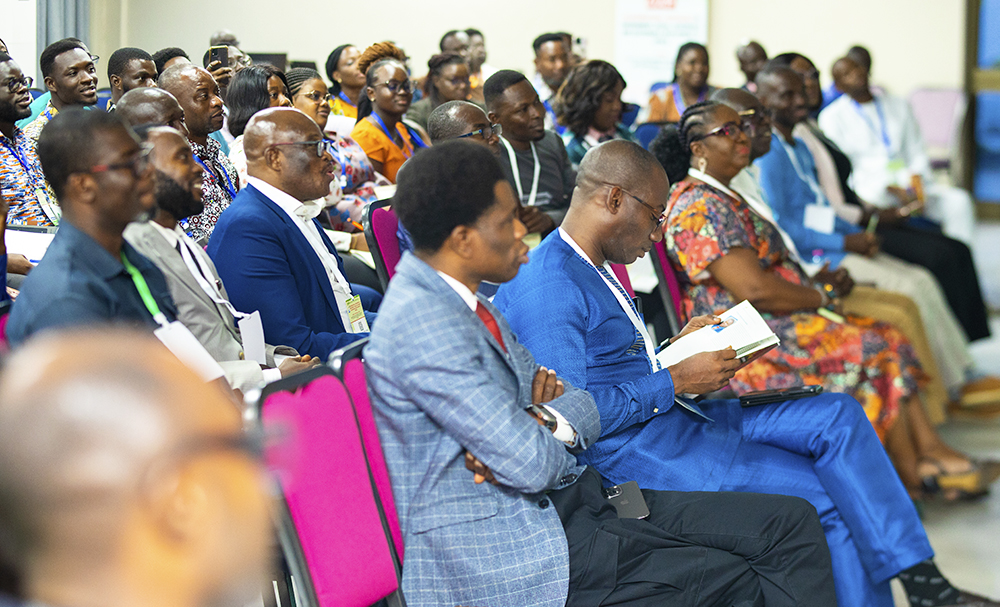The Green Communities International (GCI), a non-governmental organisation led by Professor De-Graft Owusu-Manu from the Department of Construction Technology and Management at Kwame Nkrumah University of Science and Technology (KNUST), Kumasi has held its first-ever International Conference on Environment, Social, Governance, and Sustainable Development of Africa (ICESDA) 2024.
The two-day event under the theme "Enhancing Environment, Social, Governance, and Sustainability for Africa's Development" took place at the Impact Building, KNUST from 27th to 28th March 2024. The conference brought together industry players, seasoned academics, business leaders, traditional leaders, political figures, religious leaders, philanthropists, and CSR practitioners, who delivered presentations and engaged in discussions on the 17 Sustainable Development Goals (SDGs).

Professor De-Graft Owusu-Manu, in his welcome address, expressed immense excitement at the realisation of the inaugural edition of the conference. He noted that the conference sought to bring together representatives from diverse sectors and countries to engage in meaningful discussions, share insights, and explore collaborative opportunities aimed at enhancing existing knowledge on sustainable development. He highlighted that the foundation, Green Communities International (GCI), was founded on the principle that sustainable development should be approached through the lens of the main pillars of the SDGs: environment, social, economic, and governance. This holistic approach has guided efforts to unite people from various functional groups and countries, empowering them to address short- and long-term sustainable development imperatives, he said.
Professor De-Graft also outlined GCI's vision to provide advisory services, technical support, training, research and development, market access partnerships, and project funding focusing on critical issues related to green and sustainable development in Ghana, Africa, and other developing countries. He emphasised that the foundation offers innovative solutions to green and sustainable development challenges in Ghana and Africa, while also fostering the creation of eco-friendly communities that are not only greener but also resilient to disaster risks and harsh climate changes.
He thanked all partners, sponsors, members of the conference secretariat, and committees that contributed to making the conference a reality and hoped that the discussions and expertise shared during the conference would shape the future of sustainable development in Africa and globally through thought-provoking dialogue and collaborative efforts.

In an address delivered on behalf of the Vice-Chancellor, Professor John Tia Bugri, the Provost of the College of Arts and Built Environment, KNUST highlighted the theme's relevance, noting that while foreigners often perceive Africa as rich, its people often see it as poor, a sentiment reflected in the AU Agenda 2063, "The Africa We Want." This vision, he said, encompasses a prosperous Africa built on inclusive growth and sustainable development, an integrated continent, good governance, democracy, and the rule of law, all contributing to the aspirations of the seven-point wish list for Africa's future.
The Provost emphasised the commitment of KNUST to advancing knowledge in science and technology through relevant research, quality teaching, entrepreneurship training, and community engagement, guided by the University's core values of Innovation and Technology Leadership, Culture Excellence, Diversity and Equal Opportunity for all, and Integrity and Stewardship Resources. He noted the alignment of the conference’s theme with the AU Agenda 2063’s aspirations and KNUST's values, stressing the importance of collaboration to accelerate progress towards the envisioned Africa.
He underlined the University's commitment to sustainable development through environmentally friendly practices, addressing societal challenges, and active engagement with local communities. ‘As we gather here, it is evident that the issues of environment, social, governance and sustainability have never been more critical for Africa and the world at large. The challenges we face today are immense, ranging from climate change and environmental degradation to social inequality and inadequate governance structures. However, amidst these challenges lies an abundance of opportunities for us to shape a sustainable and prosperous future for the continent,’ he remarked.

Professor Rexford Assasie Oppong, the Head of the Department of Architecture, introduced the concept of "Adinkratecture" in his presentation, highlighting the Ghanaianisation of the SDGs through Adinkra symbology during his presentation. He disclosed that he and his team extensively researched 96 Adinkra symbols, interpreting them to localise the Sustainable Development Goals (SDGs). Professor Assasie Oppong stressed the importance of internalising the SDGs, which inspired him to develop a system of representing the SDGs using Adinkra symbols. To him, this innovative approach aims to blend traditional Ghanaian cultural symbols with global development objectives, fostering a deeper connection and understanding of sustainable development within local contexts.
Professor Joshua Ayarkwa, the former Provost of the College of Arts and Built Environment, delivered a keynote address on ‘Advancing Sustainable Development Goals (SDGs) in Africa: The Role of Built Environment Professionals.’ He called for strategic decision-making within the construction industry to align with the SDGs, advocating particularly for Indoor Environmental Quality (IEQ) and green building standards. Professor Ayarkwa urged all stakeholders to prioritise sustainability in their actions to achieve the SDGs and contribute to realising the vision of "The Africa We Want."
The conference featured a diverse range of presentations, including keynote addresses from academic experts, industry professionals, and scientific researchers, along with panel workshops, all focused-on strategies for achieving sustainable development goals across various fields.

















